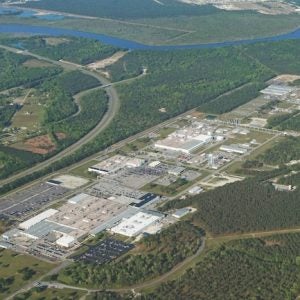Westinghouse
Westinghouse’s vice president for human resources is Tony Greco. In a recent article for NEI (November 2001, p47) he explained that the coming generation of engineers had grown up with nuclear power, but often perceived it to be more dangerous than other forms of generation.
He said that surveys of this population have shown that these young people is very technically knowledgeable and digitally connected. Their behavoural characteristics are:
• Multicultural.
• Environmentally and socially conscious.
• Extremely busy, but valuing their free time.
• Optimistic.
• Group-oriented.
• A generation of ‘do-ers’.
Greco said the oldest of this ‘Generation Next’, this year’s college graduates, have just begun to enter the workforce.
Collectively, he said, we must develop and implement programmes that are tailored to today’s teenagers to serve the nuclear industry by:
• Educating young people to create awareness and positive perceptions of nuclear power.
• Attracting and keeping talented new technical workers.
• Transferring technical knowledge from one generation to the next.
There are a number of ways that these can be achieved. These include:
• Pooling resources. More resources need to be spent on promoting the industry to the general public. This can be done by various media, including print ads, television, and the Internet. Of particular interest are our websites. These have to be modern, high-tech and attractive, because research has shown that the nuclear power industry is generally regarded as conservative, traditional and having an older workforce. Tomorrow’s workforce has grown up with this technology, and considers the Internet to be an indispensable tool and a major source of information.
• Raising profile. It is also necessary for the industry to raise its profile in the community, and especially in the school, and to provide information about nuclear careers and the environment to children. This requires speakers capable of engaging young students in lively discussions and hands-on experiments, written materials that portray nuclear power in a positive light. As an example, Westinghouse’s parent company, BNFL, has an active programme to promote science in the classroom. As part of this programme, BNFL distributes science teaching materials to instructors with workbooks and CD-ROMs containing interactive games, lessons and activities about the sciences.
• Job shadowing programmes. The industry needs to foster more job shadowing programmes, in which young local students pair up for all or part of a business day with nuclear engineers and other technical professionals. Similarly, it is possible to partner with local schools to create sabbatical programmes in which educators come to work for brief periods of time to study and learn in the nuclear environment, and then take this new knowledge back to their classrooms. This group is vitally important, because apart from parents, teachers have the greatest influence on students’ career interests.
The industry shouldn’t maintain barriers that keep it out of touch with the public. For example, membership of technical societies shouldn’t be confined only to those who are able to understand nuclear science and technology. By including such people as teachers, students, and those interested, the industry will be more accessible and less mysterious to those who are not part of it. South Korea has a very successful example of this in its Women Interested In Nuclear (WIIN) which extends its membership to any woman interested in the nuclear industry.
The nuclear industry has to implement new company practices and adapt work environments to help attract and retain tomorrow’s workforce. Four key areas identified by Westinghouse include: alternative work schedules, such as job sharing; balancing of work and home life; on-site employee services such as dry cleaning and meal deliveries; and programmes on how to understand the various cultures and generations within the workplace and work more effectively together. Several utilities are already adopting these workplace practices. One example is that of South Texas, where the workers can work four 10-hour days, enabling them to enjoy a three-day weekend.
Greco said it was important and urgent that this knowledge is passed on to the next generation of nuclear engineers. To achieve this, Westinghouse has created its own approach toward a ‘learning organisation’. In one of its technical departments, for example, it has identified critical skill sets that must be maintained both now and in the future. Westinghouse is establishing processes to help newer technical professionals gain proficiency in those skills by working alongside their senior counterparts in a variety of projects.
NEI
The Nuclear Energy Institute says that two or three years ago, most utilities were hiring few or no new college graduates, because many utilities were in the process of downsizing. This has changed, partly because of the concerns already noted, and great emphasis has since been placed on recruitment.
The NEI now characterises competition for graduates as ‘intense’. One recruiter who had recently been hired from a university said: “You have to distinguish yourself from the others. When I was at the University of Memphis, we had over 400 companies recruiting on campus, so you have to do extra things to get students’ attention.”
Most utilities have recognised the need to compete aggressively for new recruits, and many have new and often innovative programmes such as:
• Sending engineers to campus instead of or as well as human resources personnel. One utility
assigns a vice president level engineer to each key school; many send young engineers, often from the same schools. The engineers relate better to the potential recruits, and are better able to talk about the work and answer questions.
• Creating strategic partnerships with engineering schools and departments. These are long-term relationships, including co-operative education programmes, sponsorship of events and lending engineers to give lectures or teach courses.
• Offering or supplementing scholarships.
• Keeping the company’s name as a presence on the campus by offering food and drink at campus events, having a strong presence at career fairs, or handing out small gifts with the company’s name on it. Having a presence tells students that the company is serious about hiring, and suggests that the prospects for the future are good.
• Holding an information session with food the day before a career fair.
• Having an enthusiastic CEO who enjoys going on campus and talk with students.
• Establishing a systematic development and training programme. One company hires students from community colleges to work as engineering technicians at the utility, encourages them to enroll in universities, and fosters the students’ development and loyalty so they will return to engineering jobs.
• Co-ordinating recruitment to take advantage of all the corporate resources. One recruiter noted that potential candidates are exposed to various areas of the company. Students are more likely to fit in, and they also learn that there are
good opportunities to move on to new challenges within the company over time.
• Contributing money to organisations of interest to potential recruits.
• Giving on-site tours and plant visits.
• Using the Internet. In addition to web sites, of which some utilities are quite proud, at least one recruiter searches in INPO scholar lists and sends information to everyone on the list.
The NEI says nearly all utilities view internships and summer jobs as valuable. Some companies hire only from such students, because they believe that these jobs provide the best opportunity for mutual assessment. It has been noted that it is far less risky to hire someone who has interned, because that person’s working habits are known. One recruiter reported that some students postponed returning to school so they could help with an outage and gain experience.
Internships and summer jobs have to give students meaningful and interesting work. Favourable word of mouth draws other students, and a bad experience can destroy the company’s reputation on campus, so the companies are making efforts to ensure that bad experiences don’t happen. One recruiter noted that they had to change the mindset of the supervisors to gain their co-operation, by convincing them that making a good experience for potential recruits is vital to the company.
Some companies rotate students into different departments during these periods, and some interns may come back in other areas of the company.
Activities to enhance the students’ experience include parties, dinners and support systems such as assigning buddies. Putting students together socially with younger employees is important so they don’t feel out of place among so many older people.
Some people have said that: “The jury is still out” on whether or not internships help with recruiting, especially in the nuclear area, because the programmes are so new. One recruiter noted that students use internships to get work experience or to meet college requirements, but may not be interested in staying on after graduation. Some students want to try working in different career environments so that they have different experiences to draw from to make a good career decision.
One side benefit of offering summer jobs and internships is that they are valuable for showing that the company is a good citizen, providing opportunities for youth.
Various other suggestions for conveying a positive nuclear energy image include:
• Continue to produce good information to help improve nuclear’s image, to inform the public, teachers and universities. Become more high profile, and use TV commercials that publicise the address to a web site with nuclear energy information.
• Give a forecast for survival. Show that the nuclear industry is not dying, that there is plenty of life left in the existing plants, with licence renewal and the good material condition of the plants. Nuclear production could increase with the growing emphasis on environmental issues.
• Identify the chairs of nuclear engineering programmes, and ask them how the industry can promote itself with their students.
• Partner with utilities and their programmes to build relationships on campus. Faculties need to be more aware of the industry.
• Position the industry as high-tech, interesting and challenging work.
• Conduct regional information programmes for students, possibly having regional meetings for professional societies.
Young Generation Network
No single organisation can address such challenges as increasing the take-up of sciences and engineering courses at universities or materially altering public perception of the nuclear sector. However, it is possible to contribute to broader government and industry initiatives in these areas.
The YGN’s function is to bring together younger nuclear engineers, and it feels it can assist by reaching out to schools and universities to promote a broader understanding of applied nuclear technologies and encouraging those interested in careers in the nuclear industry.
It provides sponsored places on seminars for undergraduates and postgraduates. So far, students studying vocational subjects related to the field have taken up these places. It is beneficial for students to visit the nuclear sites and meet young professionals in the industry. These opportunities might influence career choices.
It is harder to engage students at schools, but this is necessary to promote nuclear education in the future and influence public opinion. YGN actively encourages members to join company talk services. More proactive measures are difficult due to work commitments, but it is to be hoped that there will be further opportunities in the future.
The format of the YGN technical seminars, mixing technical visits and plant visits with opportunities to socialise, is popular with members, and there has been positive feedback from delegates. A range of subjects caters to different levels of experience from a general introduction to the industry to more technical topics such as advanced reactor design.
The seminars provide an ideal opportunity for young professionals to develop a broader knowledge base. The courses rely on the support of companies. One of the aims of the seminar programme is to highlight possible career paths and opportunities in the industry, and thereby encourage the retention of skilled staff.
YGN is also contributing to an
Related ArticlesNuclear engineers – the next generation (part I)






